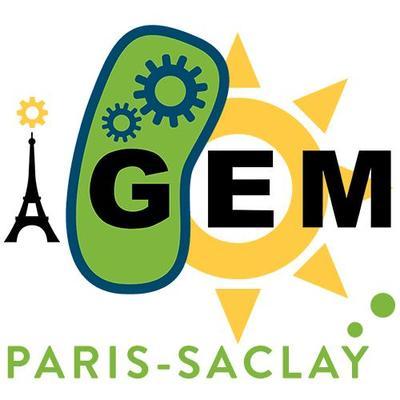
IGEM Go_Paris-Saclay
The IGEM (International Genetically Engineered Machine) competition, organised by the prestigious MIT in Boston, brings together each year more than 240 teams of students from all fields (biology, computer science, physics, mathematics, law...). The competition aims to promote synthetic biology, a discipline at the crossroads of genome engineering and biotechnology. All teams will present their project in Boston, Massachusetts, in October.
IGEM is a multifaceted programme which allows students to develop new skills. The various parts of the competition not only make it a solid and thorough programme, but also it also gives students the opportunity to get involved in education and awareness-raising, new technologies, an international community, safe research practices, project design and scientific responsibility.
Sharing:
Science has a reputation for not being open. However, in IGEM, teams are encouraged to share and publish their information about the project so that the public is informed about their work. They share their data and results through a wiki website and oral and poster presentations at the Giant Jamboree. Teams also share their new standard biological parts when they submit them to the Registry, which is accessible to the entire synthetic biology community. Teams also specify the contributors to the project by citing the previous work that inspired them and clearly indicating who led project on their team's wiki.
Multidisciplinarity:
Biologists are not the kings of IGEM Go_Paris Saclay.
Every year, the team needs biologists, but also bioinformaticians, computer scientists, physicists, mathematicians, electricians, mechanics and even lawyers and artists. Diversity is a source of richness and performance for an efficient IGEM team.
The IGEM competition also promotes strong values within the teams. Students must be honest when doing their research, cooperate with each other, demonstrate fair play, be respectful of their peers and celebrate each other's efforts.
History of participation in the IGEM competition
- 2012: "GENOME" Implementation of a tool using temperature as a means of controlling gene expression through the combination of two regulatory systems: RNA thermometers and a thermosensitive repressor.
- 2013: (Gold Medal) "PCB Busters" Development of bacteria capable of detecting and degrading PCBs in order to depollute the Seine and remove this element known to be toxic. The team in charge of this project earned a European gold medal.
- 2014: (Gold medal) "This is not a lemon" Development of yellow bacteria capable of producing a lemon scent, which advances ethical reflection on the role of synthetic biology and of the evolution of living organisms both in our diet and more generally in our perception of what is "natural" in everyday life.
- 2015: (Bronze medal) "SafetE.coli" Design of a genetic and physical containment system for bacteria in order to prevent the accidental release of genetically modified bacteria into the environment.
- 2016: (Bronze Medal) "Get DNA Closer" Creation of a new tool based on the CRISPR/Cas9 system to bring two specific DNA regions closer. This system is made up of two different dCas9 proteins fused with each part of the FRB / FKBP12 dimerisation system. Each dCas9 will target a specific DNA sequence to study the effect of combining a strong promoter and a weak promoter on downstream gene expression. This project won a bronze medal in 2016.
Contact
15 rue Gregor Mendel
91405 ORSAY Cedex
France
